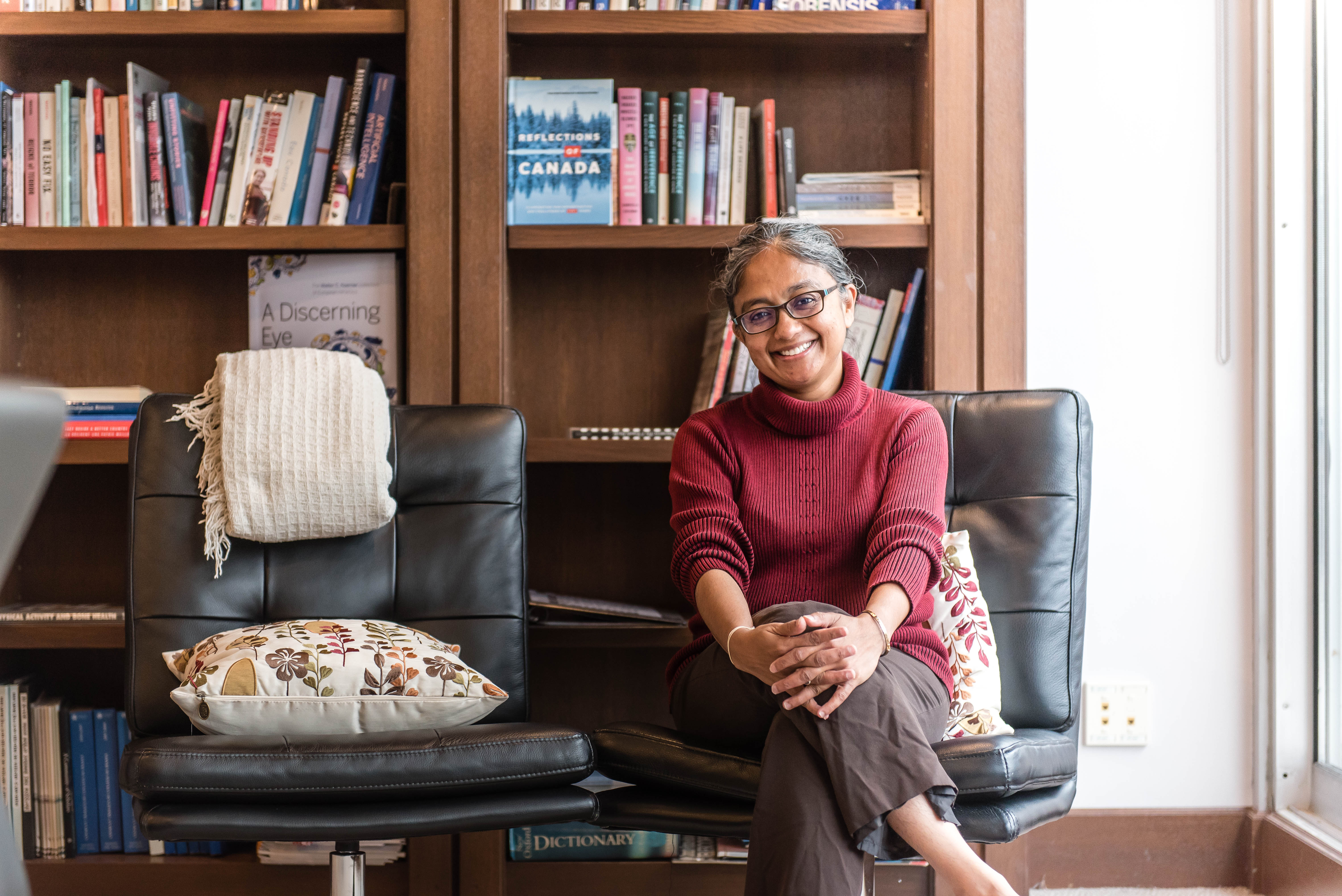Women in Science: Malabika Pramanik
January 27, 2020

January 27, 2020

Women who say that they strongly self-identify with mathematics are less likely than men to pursue a major in math. Why does this happen and how can we improve diversity in STEM fields? UBC mathematician Malabika Pramanik says that we need to first acknowledge this issue and then analyze the reasons that keep women from pursuing math as a career.
Pramanik joined UBC in 2006 after a postdoctoral term at the University of Wisconsin Madison and a Fairchild Senior Research Fellowship at the California Institute of Technology. She has become a leading mathematician in her field, winning the Ruth I. Michler Prize of the Association for Women in Mathematics, the Krieger-Nelson Prize of the Canadian Mathematical Society and a Killam Research Prize from the UBC Faculty of Science. She was a 2018-2019 Wall Scholar at the Peter Wall Institute for Advanced Study. In 2019, her work was recognized by a Simons Fellowship.
Pramanik believes diversity in STEM can be improved through meaningful mentorships for underrepresented groups. This is the idea behind Diversity in Mathematics, a summer program held at UBC that brings together underrepresented high school and university students with an interest in STEM careers.
I first seriously thought about becoming a researcher when I was in grad school. Before that, I was headed towards the vocation of teaching mathematics. Working on my Ph.D. thesis gave me the first taste of professional research. I found the process of exploration and discovery intellectually stimulating. My tastes then reoriented towards a career that would give me ample opportunity for both teaching and research.
My mother and my grandmother were both teachers and held prominent roles within their workplace. They were instrumental in shaping my career choice towards a teaching profession. When I was a postdoctoral fellow at the University of Wisconsin Madison, I briefly came in contact with Mary Ellen Rudin, a topologist. Her rise to the top of the profession at a time when there was no female representation in the higher echelons of the discipline was an enormous source of inspiration to me.
The only way to make a field more accessible for women is by first acknowledging and analyzing the reasons that keep them away. In STEM fields, this could be an elitist culture, the pressure to look and act smart, professional expectations to meet requirements of promotion and tenure on the same timeline as male colleagues, setting aside demands of one's personal life until a level of professional stability is attained. The next step would be to implement explicit policies and measures that address these issues and make the discipline more welcoming for women. Last but not the least, there has to be a sustainable support network for young women joining the field.
If you like what you do, stick with it. Be gentle on yourself, celebrate small victories. Please do not give up because the culture made you feel less capable.
I love the joy and excitement of exploring without knowing what is around the corner. I like puzzling over things that often seem intractable, and then teasing out bits of sense from an initially meaningless tangle. I enjoy sharing what I know with others, working together towards a solution and looking at the world of mathematics through many different lenses.
***
This article is one of the many stories celebrating International Day of Women and Girls in Science, which takes place every year on February 11. Spearheaded by the United Nations, this day promotes full and equal access to participation in science, technology, and innovation for women and girls. The Faculty of Science is supporting this day by featuring ten inspiring women researchers who are making their mark at UBC and beyond: science.ubc.ca/womeninscience.
We honour xwməθkwəy̓ əm (Musqueam) on whose ancestral, unceded territory UBC Vancouver is situated. UBC Science is committed to building meaningful relationships with Indigenous peoples so we can advance Reconciliation and ensure traditional ways of knowing enrich our teaching and research.
Learn more: Musqueam First Nation